Repatterning is a series of talks about being turned inside out. It is about the experience of being radically upended, the work of dreaming, and the ghosts that travel along the way. Concentric circles rippling outwards from art, crisis, music, sickness, reinvention, mourning, renewal, collapse, and enchantment. Picking through the remnants and imagining what might emerge, as the grains of sand pile upwards, the hope drone swells, the gamelan chimes, and the distant bells peal.
Repatterning is available via RSS, and via Apple or Google, with occasional glimpses on social media.
Repatterning 10/1 · Nina Nastasia August 6, 2023
Nina Nastasia talks about loss and rediscovery, self-esteem and singing, and potatoes in the back of the car.
A note of caution: Some parts of this conversation will not be suitable for all listeners — it involves discussion of self-harm, abusive relationships, and suicide.
“Personally, I never cared about being good enough. I didn’t care — I always thought the idea of being the best in something in art is just absurd.”
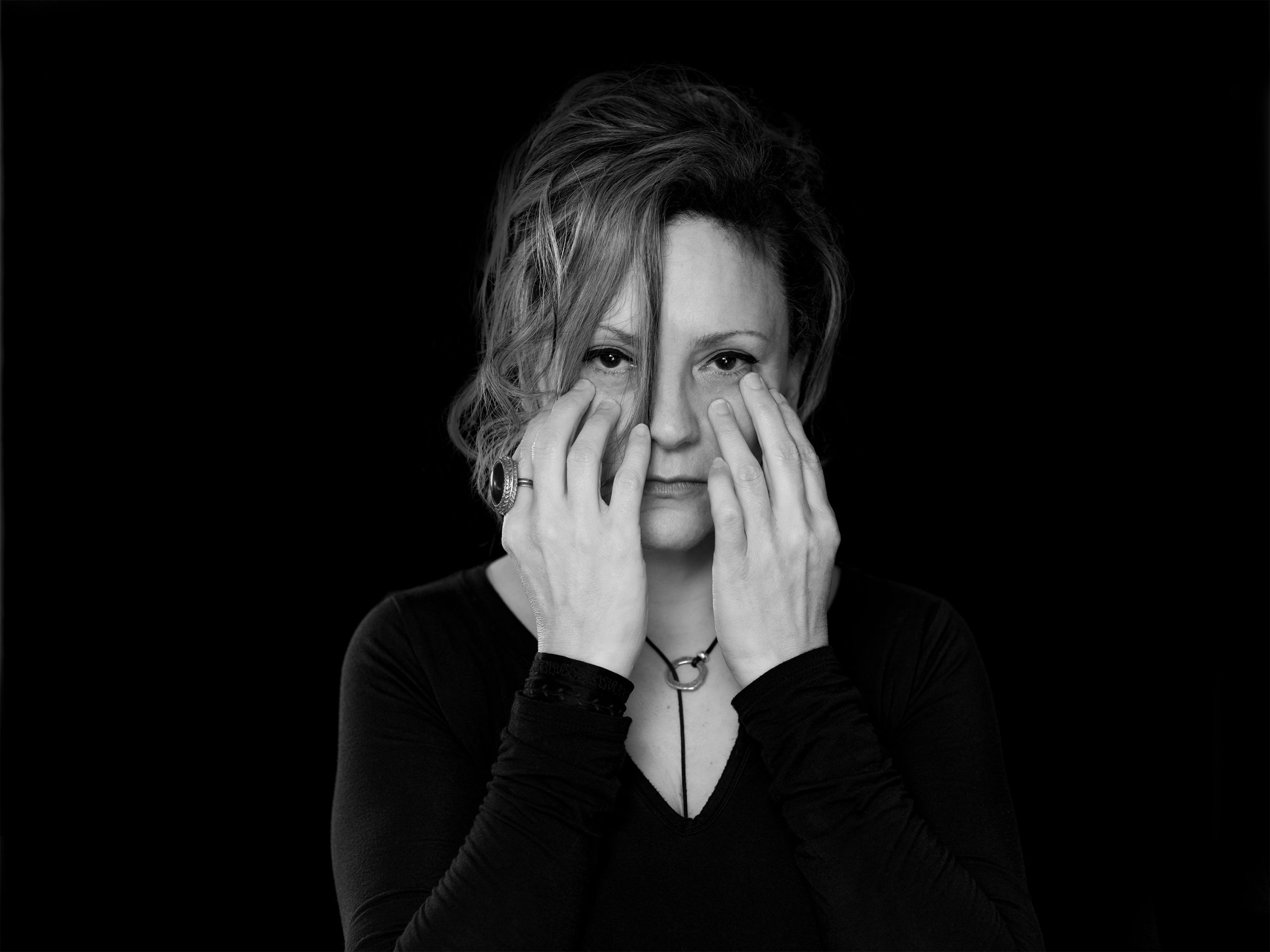
Nina Nastasia · Photo: Theo Stanley
Nina Nastasia is an American singer-songwriter. Her seventh and most recent album, Riderless Horse, was released by Temporary Residence Records in 2022.
Repatterning 9/1 · Maya Indira Ganesh July 16, 2023
Maya Indira Ganesh talks about language and metaphor, artificial intelligence and instinct, the flaws and costs of technology, and scoring societies.
“Moving away from the anthropomorphic metaphors of artificial intelligence signals, for me, a really valuable shift — saying that maybe can just think about this as computers, computing. Not computers trying to be like humans. Even things like ChatGPT are going to be useful in very specific and narrow kinds of applications. And it comes with all kinds of glitches and flaws and faults, and moments of breaking. Because it is just computers doing things. And they always break.”
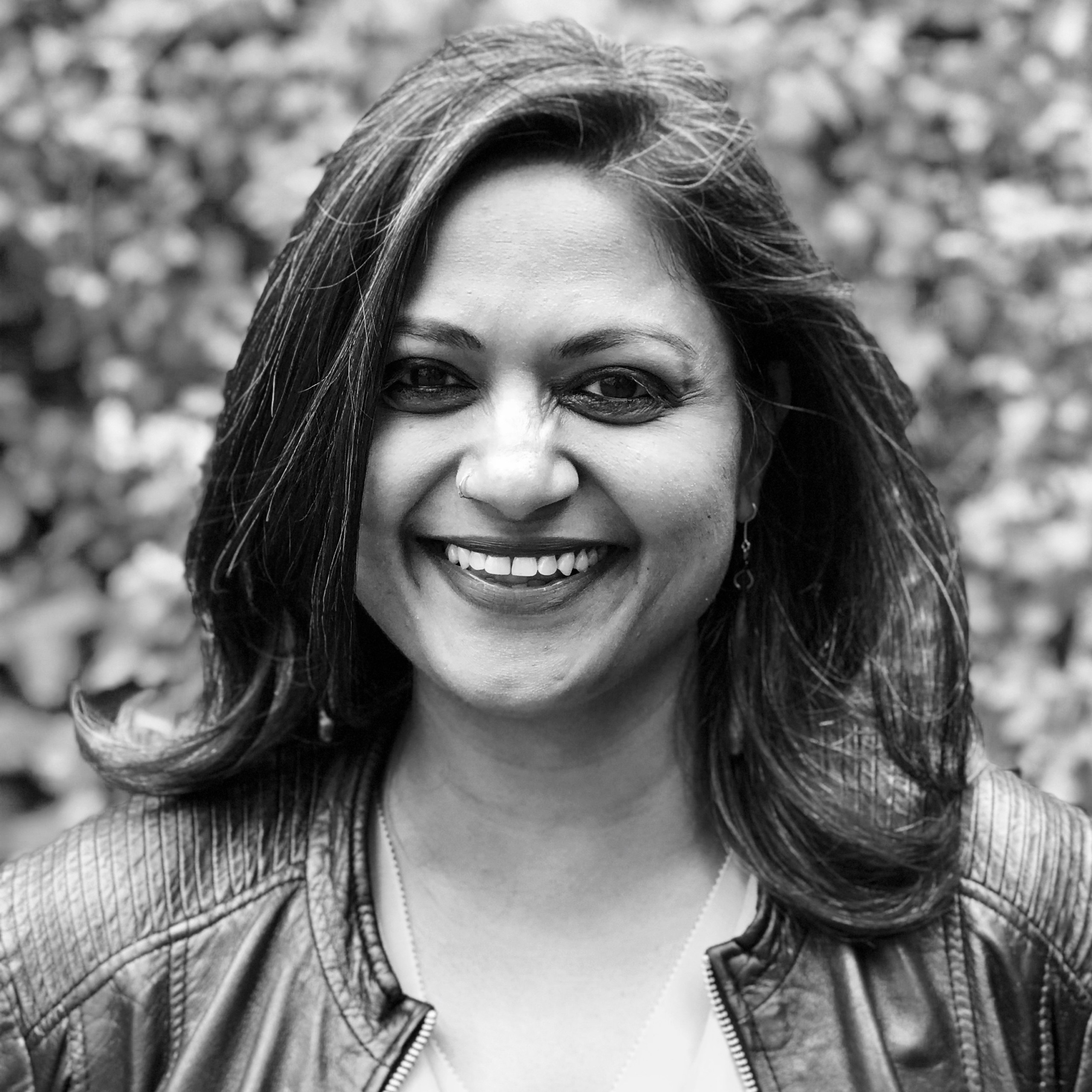
Maya Indira Ganesh
Maya Indira Ganesh is a technology and digital cultures researcher, writer, and educator. She co-leads a Masters program on Artificial Intelligence, Ethics, and Society at Cambridge University, and also works as a writer and curator on art, culture, and AI.
Repatterning 8/1 · Dafne Narvaez Berlfein June 25, 2023
Dafne Narvaez Berlfein talks about patterns and passers-by, archives and digging, centres and peripheries, and being a cultural worker.
“That’s the classic sentence: centre and periphery. I try to not just think that there is only one centre, but multiple centres. Not giving the label of periphery to something just because it’s outside of this big centre. And I think this is a bit what I try to think – believing in multiple centres instead of peripheries in regard of specific centre.”
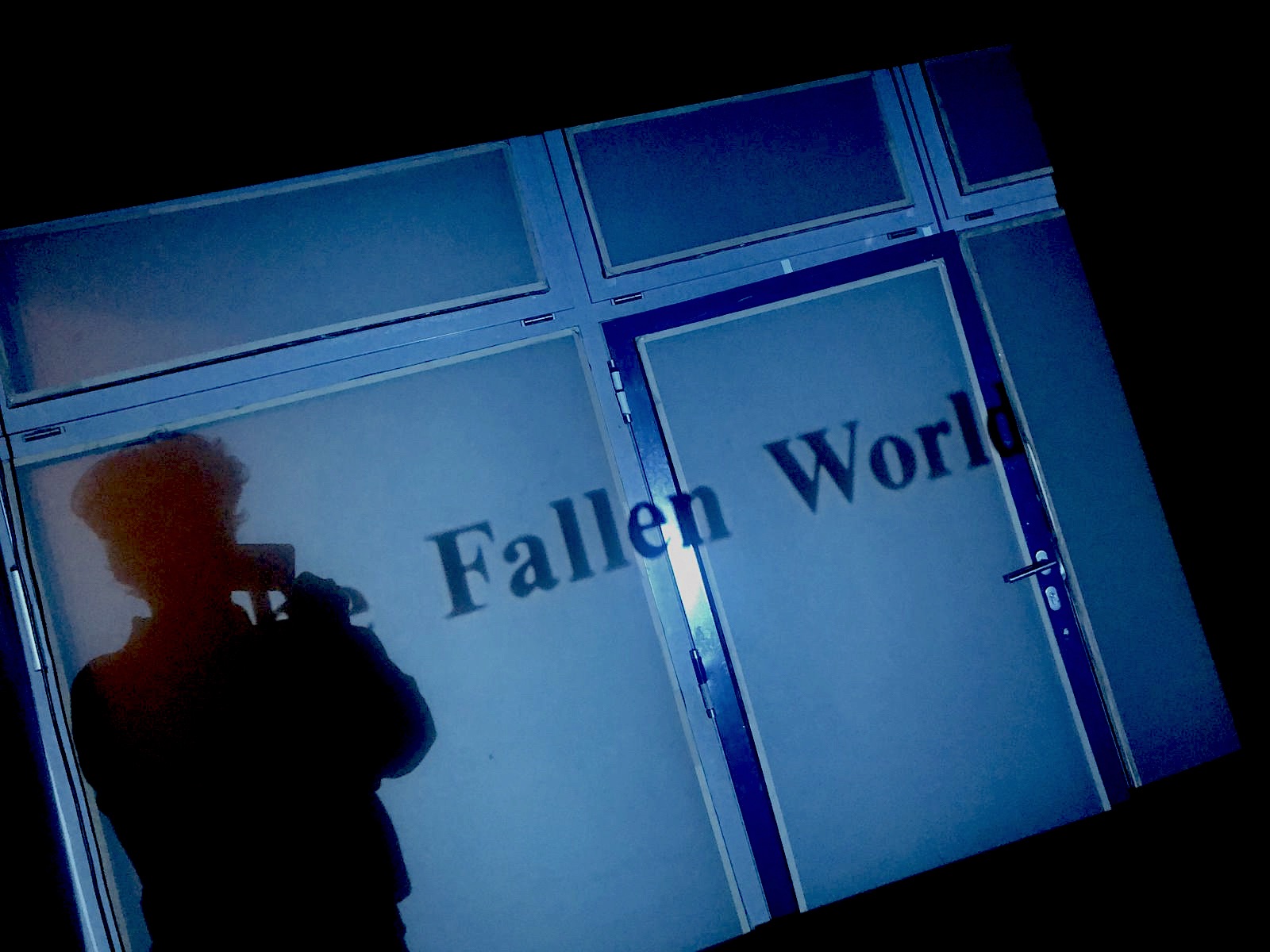
Dafne Narfaez Berlfein
Dafne Narvaez Berlfein is a Berlin-based film and video artist; she also teaches and researches historical and contemporary media aesthetics. Prioritising a collaborative approach and an intersectional perspective, her work encompasses multiple genre and media. Film, videotape field recordings, live video captures and modulated interventions are Narvaez Berlfein’s tools to create visual interpretations, in dialogue with the works of composers, sound artists, and performers, always with a DIY and DIWO (do it with others) approach. Her works have been shown at the Deutsche Oper Berlin, the Philharmonie Luxembourg, Documenta 14 and many other institutions and independent venues.
Narvaez Berlfein’s research focuses on female-identified artists who produce in underground contexts and deal with experiences of uprootedness. She has lectured at Humboldt-Universität zu Berlin, Hochschule für Bildende Künste Braunschweig, Universidad de Buenos Aires, and Universität der Künste in Berlin.
In 2015, she initiated the series Sentimental Punk in the project space Kotti-Shop, which incorporates her academic research in a decidedly non-academic context, and which she still curates today, where sound artists and musicians create live soundscapes to accompany rarely-seen feminist avant-garde films.
All of her projects share the concern of decentralizing social-cultural structures through artistic discourse.
Repatterning 7/1 · Sasha Engelmann June 4, 2023
Sasha Engelmann talks about satellites and oracles, radio and air, sustainability and choices, and sitting with the compromises.
“I’ve spent many dark nights listening to transmissions from all over the world and recording them — and having the best time. I think there is something about this ephemerality and planetary collectivisation that’s possible through radio that’s really not that possible through social media, or other kinds of technologies.”
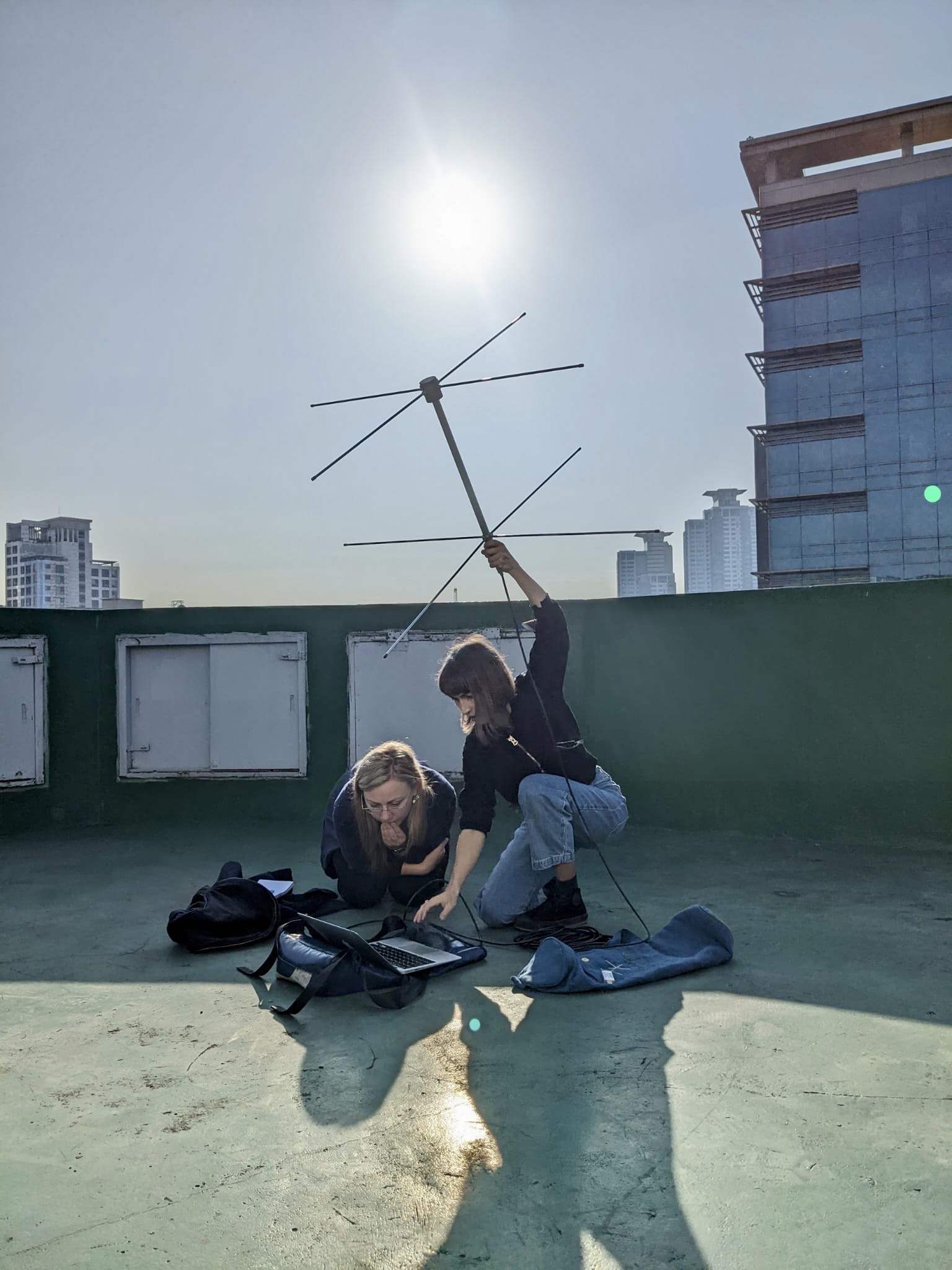
Sasha Engelmann (holding antenna)
Sasha Engelmann is a London-based geographer exploring interdisciplinary, feminist and creative approaches to environmental knowledge making. Her current project, Advancing Feminist and Creative Methods for Sensing Air and Atmosphere, explores the value of feminist principles, creative practices, and design justice tools for citizen-led monitoring of air quality and weather patterns. Her first book, Sensing Art in the Atmosphere: Elemental Lures and Aerosolar Practices (Routledge, 2020) investigated the role of artistic and activist initiatives in expanding aesthetic and political orientations toward atmosphere, aeromobility, and the elements. Sasha is an active member of the Aerocene Community and a co-founder (with Sophie Dyer) of the feminist satellite imaging project open-weather. She is Senior Lecturer in GeoHumanities at Royal Holloway University of London where she teaches at the intersection of geography and the arts and humanities.
Repatterning 6/1 · Kate Donovan May 14, 2023
Kate Donovan talks about meteors and interruptions, apples and time, sensing and bubbles, and temporary listening communities.
“I was thinking of the apples as a sound of interruption — something that just happens. So it makes you pay attention to something else in the garden — the more-than-human world. And in terms of radio, I think of the meteor as a figure of interruption. […] When a celestial body meets an atmosphere from a planet it generates ionized trails. That’s what we see as a meteor. […] And it’s possible to send a radio frequency and it would bounce off of these trails. So I think of it as a figure of radio interruption.”
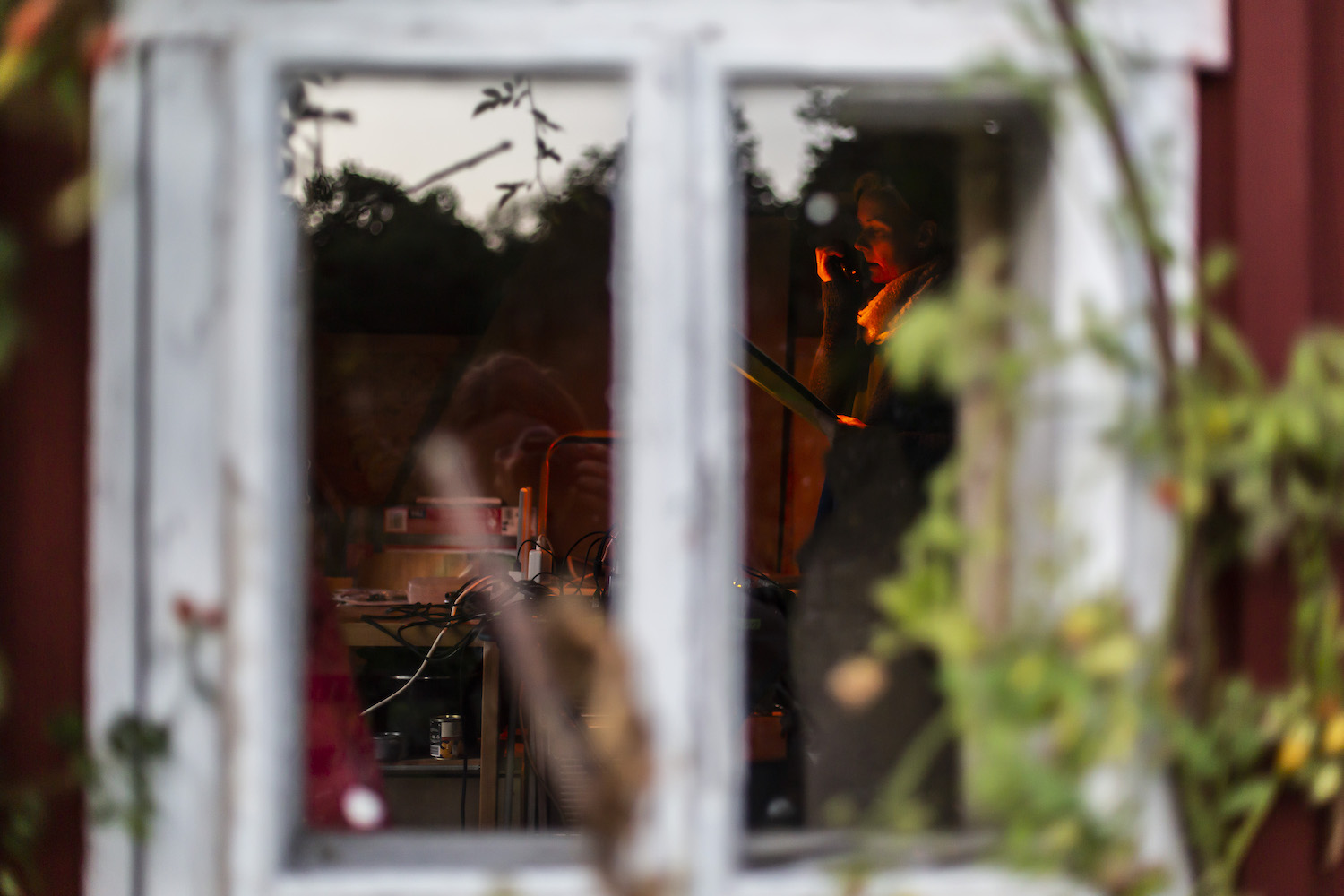
Kate Donovan · Photo by Victoria Tomaschko
Kate Donovan is a Berlin-based artist and researcher working with radio, listening and the more-than-human. She is interested in transmission and interconnectedness, but also disruption and interference. Her research focusses on non-anthropogenic radio, and re-thinking/working dominant radio histories.
Much of her practice is together with others and circles around knowledge exchange and experimentation. She is part of CoLaboRadio (Free Radios Berlin Brandenburg), the Datscha Radio Berlin team, the international feminist group Shortwave Collective and is a co-founder of Radio Otherwise, an artistic research project motivated by the plurality of experiences involved in radio-making in connection to ecological thinking. She is also part of the research group SENSING: the Knowledge of Sensitive Media (Potsdam), with a project on Radio as Relation.
Repatterning 5/1 · Jasmina Al-Qaisi April 23, 2023
Jasmina Al-Qaisi talks about poetic services and backwards walking, waves and utterances, archiving and abandoning, and subwoofers.
“I’m not thinking so much of visual and concrete poetry anymore […] I’m rather thinking about letters, words or objects, shadows. There are different things that could be a possible score; flexible, fluid or a matter of interpretation. It sounds a bit abstract, but it’s not so abstract actually, it’s a decision one takes. Just to give an example of what I mean in saying I’m thinking of writing with my voice.”
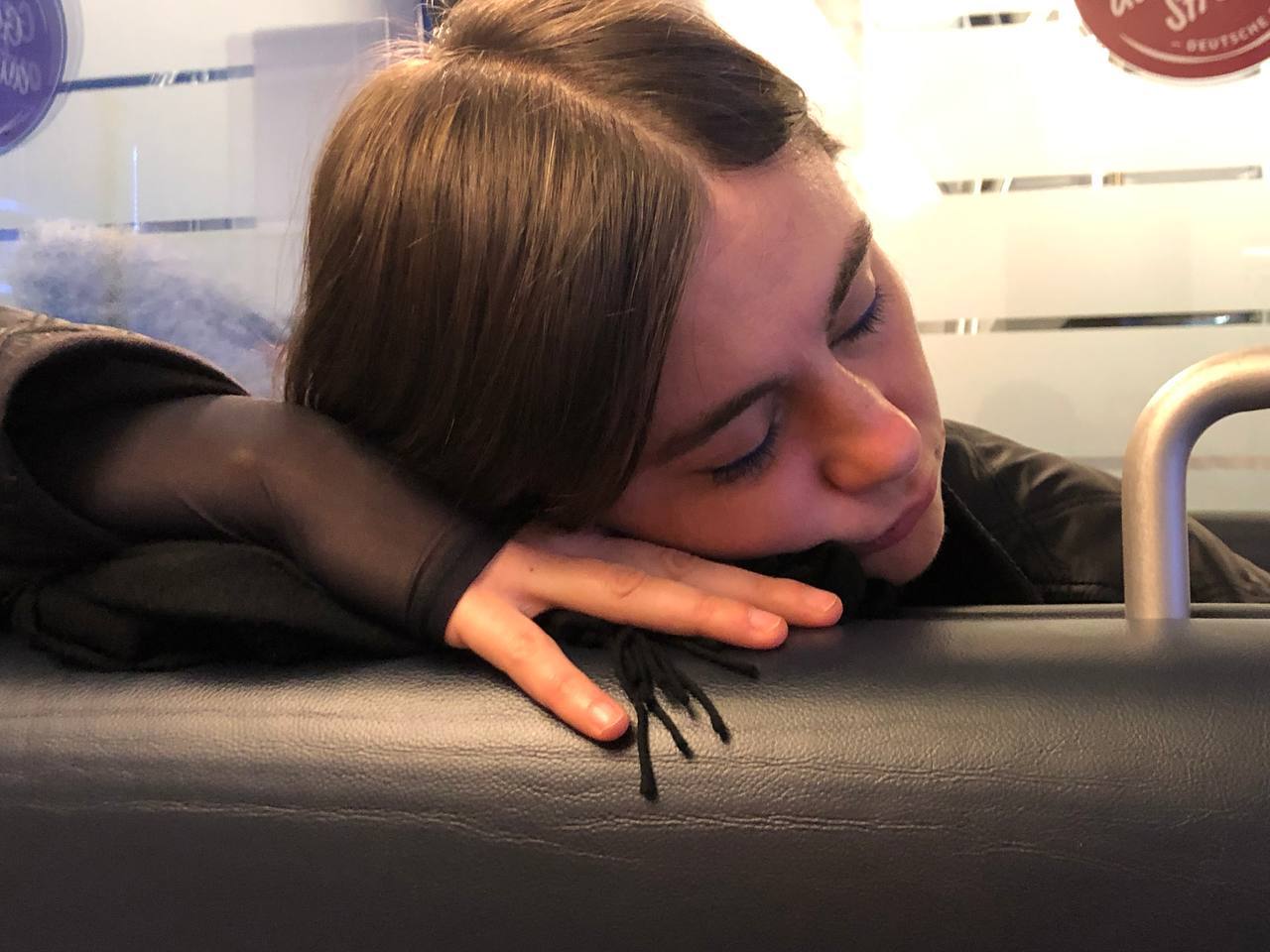
Jasmina Al-Qaisi
Jasmina Al-Qaisi is a writer for voice and paper, appearing sometimes in other forms, such as a walking scientist, the schnelle musikalische hilfe service, or as the only agent for the self-entitled-self-entitlement-office. Jasmina is as well listening with her hands and makes waves on free, independent, temporary, mobile radios and public radios writing with sound.
Repatterning 4/1 · Shelley Etkin April 2, 2023
Shelley Etkin talks about landing and healing, digging and dreaming, being in dialogue, and ways to think about gardens.
“How can we learn to include ourselves, to an appropriate degree, so that all the needs can actually start to feed and nourish each other? And that is where a regenerative framework also tries to push the notion of sustainability — keeping something going, maintaining and upkeeping operations — into how we link things together so that they actually serve and nourish each other. Including us. And including in the city, for example. How would it be to move through the city as a garden? What if the city was a garden of gardens?”
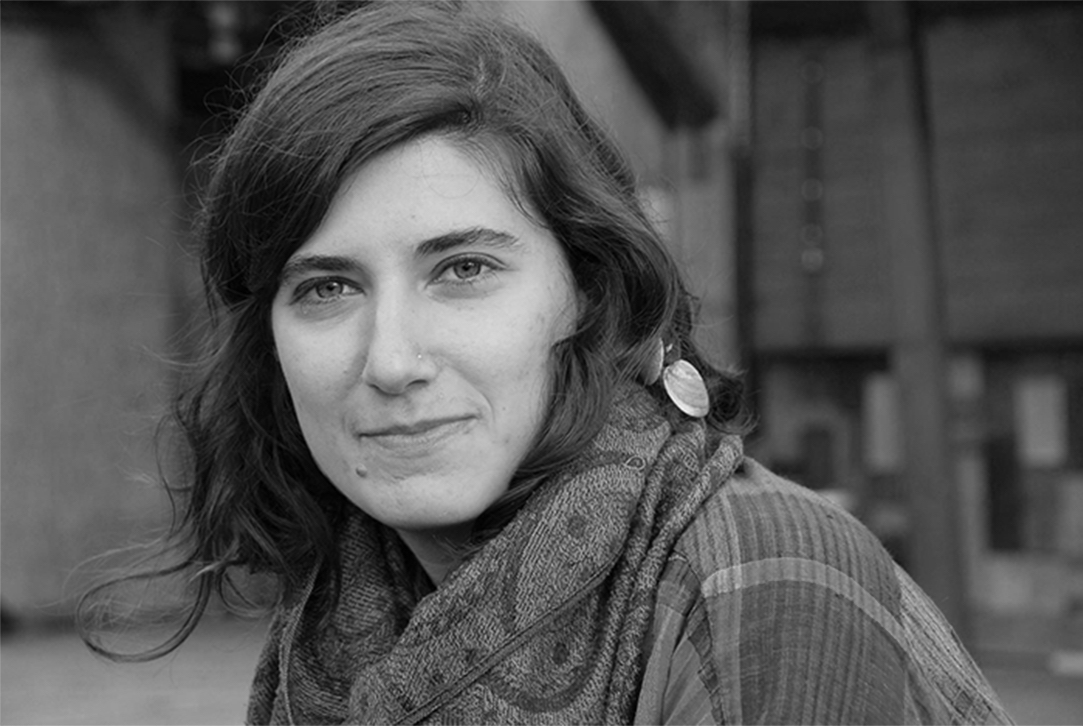
Shelley Etkin
Shelley Etkin is a transdisciplinary artist, educator, and gardener, based in Berlin. Her work centers relations between bodies and lands, engaging in process-based ecological thinking, making, and healing.
Repatterning 3/1 · Joy Mariama Smith March 12, 2023
Joy Mariama Smith talks about puzzles and repetition, teaching and shame, noise and colour, and flavours of racism.
“You heard it here first, I’m inventing it. My note says: ‘invent black noise.’ Just so you know.”
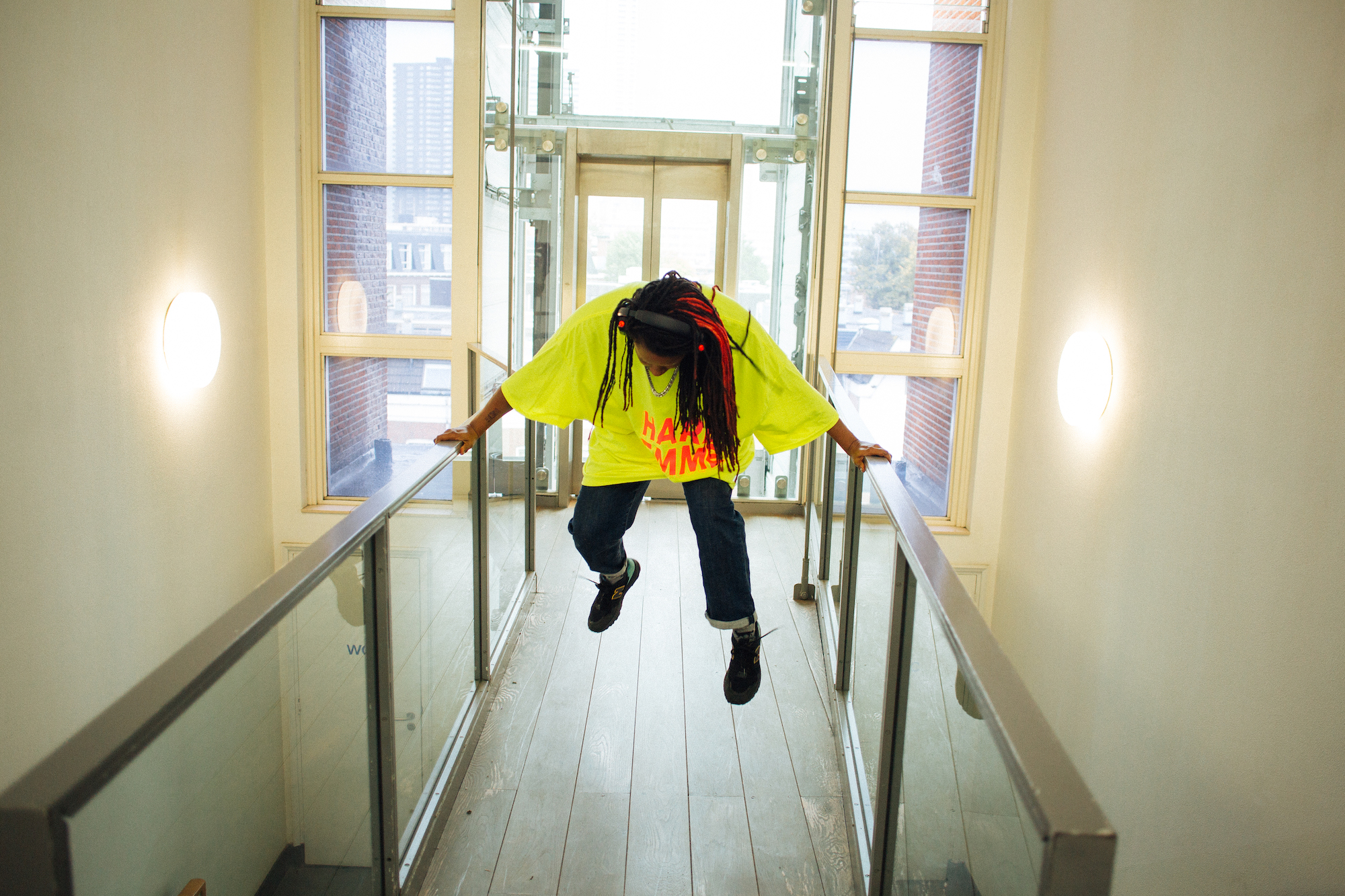
Joy Mariama Smith · Photo by Lavinia Pollack
Joy Mariama Smith is a native Philadelphian currently based in Amsterdam, Netherlands.
Their work primarily addresses the conundrum of projected identities in various contexts. A sub-theme, or ongoing question, in their work is the consideration of the interplay between the body and its physical environment. Rooted in socially engaged art practice, they are a performance/installation/movement artist, activist, facilitator, curator and architectural designer. They have a strong improvisational practice spanning over twenty years. When they choose to teach, they actively try to uphold inclusive spaces.
Repatterning 2/1 · Wiam El-Tamami February 19, 2023
Wiam El-Tamami talks about revolution and aftermath, disaster as a catalyst, ways of living, mediated truth and literary truth, and lying down.
“There was this assumption that you were totally in this together, just because of being there. You shared the same vision of life, the same dream, the same longing for a different world. That was the illusion of that moment, but also the beauty and magic and reality of that moment.”
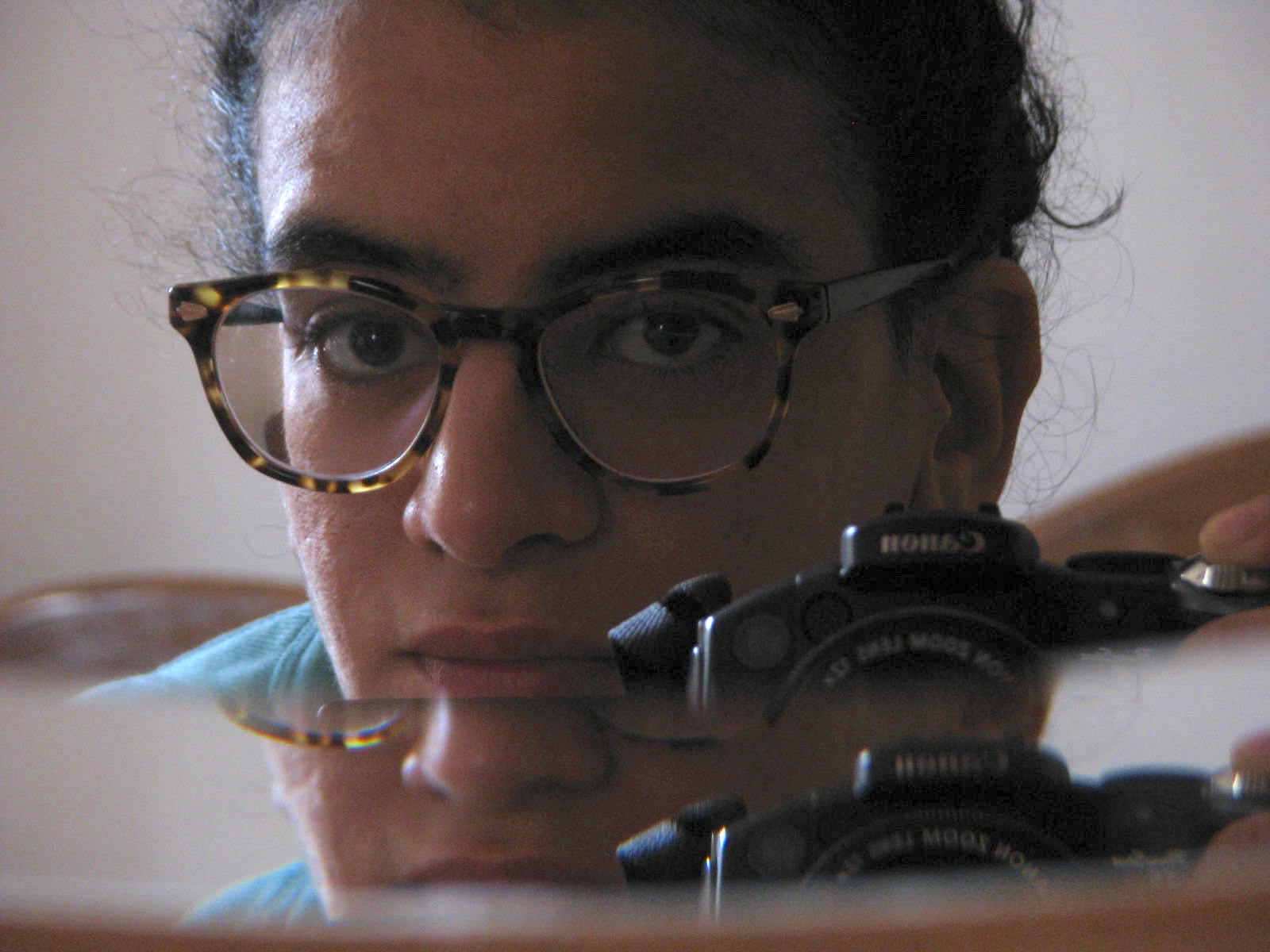
Wiam El-Tamami
Wiam El-Tamami is a writer from Egypt.
Wiam writes, translates, edits, teaches yoga, cooks, gives bodywork, talks and listens. Sleeps and wakes and dreams. Moves, a lot. She has been semi-nomadic for the past 18 years, spending time in many places across Southeast Asia, the Middle East, Europe, and North America.
Her work has been published in Granta, Ploughshares Solos (forthcoming), Social Movement Studies, Freeman’s, Jadaliyya, Alif, and in various anthologies, including Translating Dissent, The Uncanny Reader, and Road Stories. She has just finished writing her first book — a memoir of questions about her time as a volunteer on the Greek island of Lesbos — and is currently working on a second. She is based, for the moment, in Berlin.
Repatterning 1/1 · Wanda Gaimes January 30, 2023
Wanda Gaimes talks about raving and liberation, community and grief, kinship and work, cultural space and housing, and local internationalism.
“Lecken has been explicitly feminist from the beginning — and by that, I don’t just mean in a “femme to the front, women to the front” way, but feminist in the sense of having a politics that goes beyond just inclusion and representation — a politics where we try to constantly trouble the status quo, and educate ourselves further about what the stakes are for personal and collective liberation.”
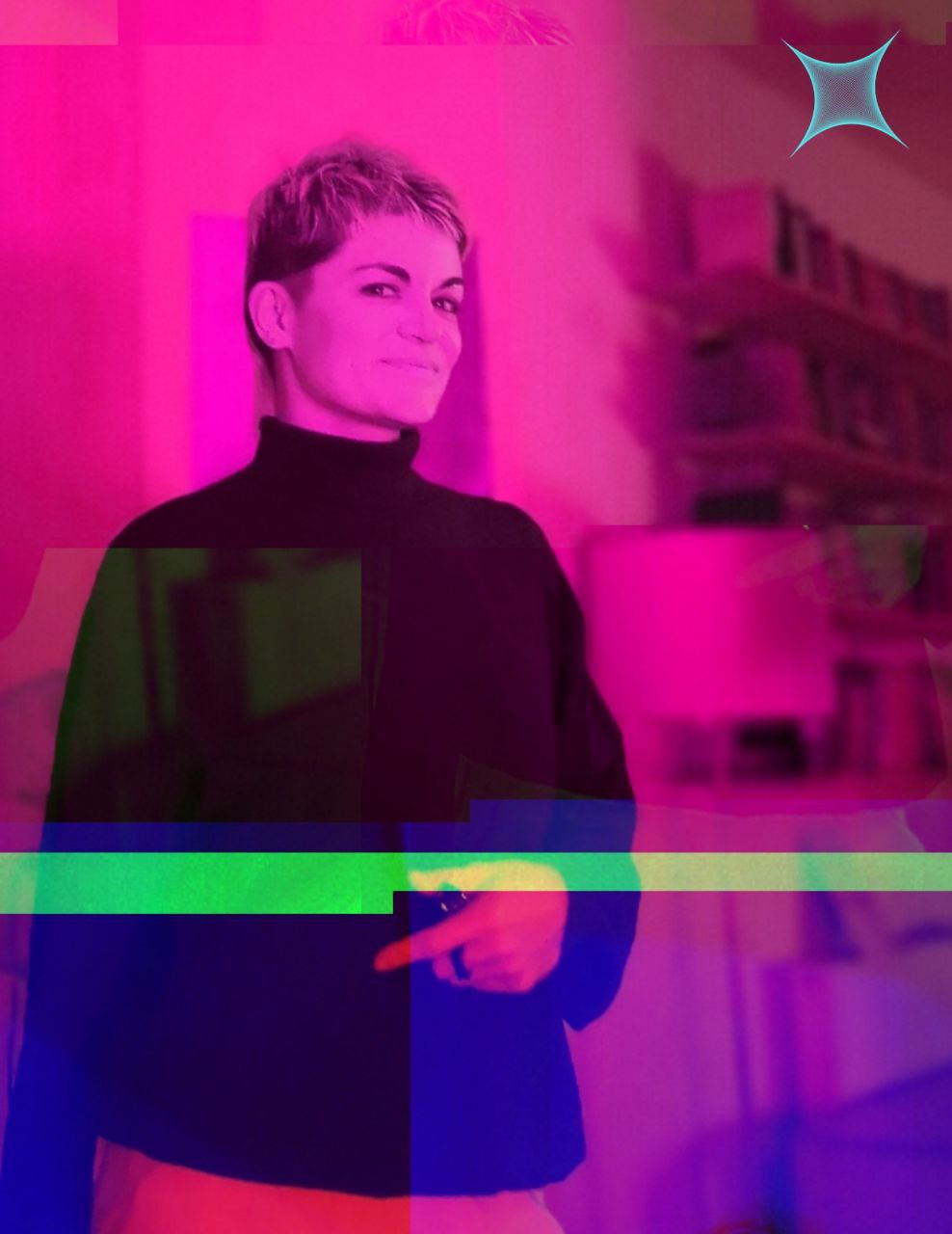
Wanda Gaimes
Wanda Gaimes is a freelance lecturer, writer, and curator.
Wanda’s interests span socialist theory and praxis, radical feminisms, queer liberation, and underground culture-making. After earning her PhD in Political Science from McMaster University in Canada, she moved to Berlin, where she pursued a post-doctoral fellowship and worked as a lecturer at Humboldt University.
Her work has been published in various social studies journals, including New Left Review and Theory & Event, and her book Volunteer Tourism in the Global South: Giving Back in Neoliberal Times appeared via Routledge in 2015. Since co-founding the queer-feminist club culture collective Lecken in 2016, Wanda has contributed to various stage productions, and performed at HAU, Sophiensaele, and Deutschland Tanzkongress. Wanda DJs under the name Skankstasy and she is the discourse program director for Whole: United Queer Festival.